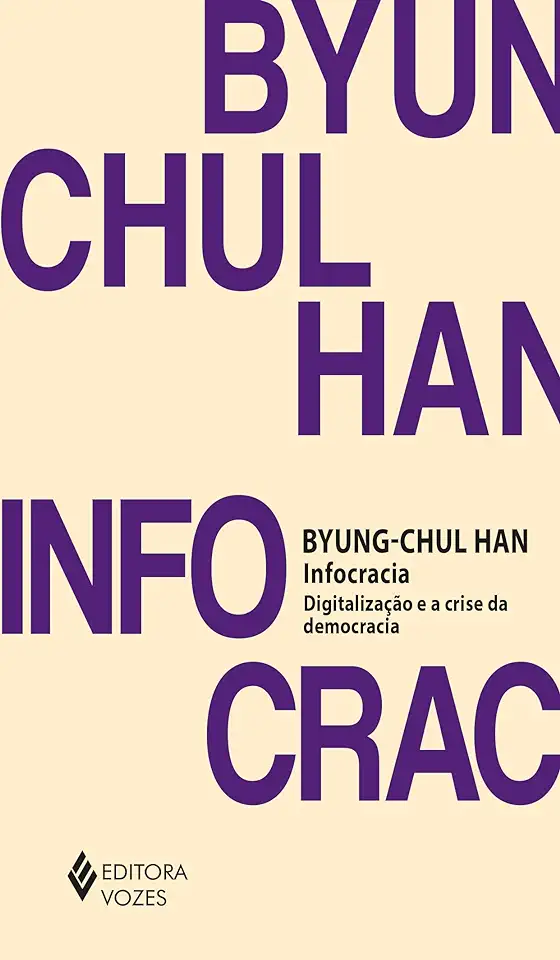
Infocracy - Digitalization and the Crisis of Democracy - Han, Byung-chul
Infocracy: Digitalization and the Crisis of Democracy
In his book "Infocracy: Digitalization and the Crisis of Democracy," Byung-chul Han argues that the digital revolution is fundamentally transforming our societies and posing a serious threat to democracy. He contends that the increasing digitalization of our lives is leading to a new form of control and surveillance that is undermining our individual freedoms and democratic institutions.
The Rise of the Digital Panopticon
Han begins by describing the rise of what he calls the "digital panopticon." This term refers to the all-encompassing surveillance system that is being created by the ever-increasing amount of data that is being collected about our online activities. This data is being used by governments, corporations, and other powerful entities to track our movements, monitor our behavior, and even predict our thoughts and feelings.
Han argues that this digital panopticon is a far more effective form of control than the traditional panopticon described by Michel Foucault. In Foucault's panopticon, prisoners were constantly under the gaze of a guard, but they were never sure if they were being watched at any given moment. This uncertainty created a sense of paranoia and self-discipline that made the prisoners more likely to conform to the rules.
In contrast, the digital panopticon is constantly watching us, and we are always aware of its presence. This constant surveillance creates a sense of anxiety and insecurity that makes us more likely to self-censor and conform to the expectations of others.
The Decline of Public Discourse
Another consequence of the digital revolution is the decline of public discourse. In the past, people would gather in public spaces to discuss important issues and make decisions about their communities. However, today, we are increasingly spending our time in private, interacting with others through digital platforms.
This decline of public discourse is having a negative impact on democracy. When people are not able to come together and discuss their differences, it becomes more difficult to build consensus and make informed decisions. This can lead to political polarization and gridlock, as well as a decline in trust in democratic institutions.
The Threat to Individual Freedom
The digital revolution is also posing a threat to individual freedom. The vast amount of data that is being collected about our online activities can be used to create detailed profiles of our personalities, preferences, and beliefs. This information can then be used to manipulate us, target us with advertising, and even control our behavior.
Han argues that the digital revolution is creating a new form of totalitarianism that is more insidious and dangerous than the traditional forms of totalitarianism that we have seen in the past. This new totalitarianism is not based on violence or coercion, but on the manipulation of our desires and fears.
The Need for a Digital Detox
In order to protect our democracy and our individual freedoms, Han argues that we need to take a step back from the digital world and engage in a "digital detox." This means spending less time online and more time in the real world, interacting with others in person.
Han also calls for us to develop a new understanding of technology. We need to recognize that technology is not neutral, but that it can be used for good or for evil. We need to make sure that we use technology in a way that promotes human freedom and democracy, rather than undermining them.
Conclusion
"Infocracy: Digitalization and the Crisis of Democracy" is a powerful and provocative book that offers a unique perspective on the impact of the digital revolution on our societies. Han's analysis is both insightful and disturbing, and he raises important questions about the future of democracy in the digital age. This book is a must-read for anyone who is concerned about the future of our democracy and our individual freedoms.